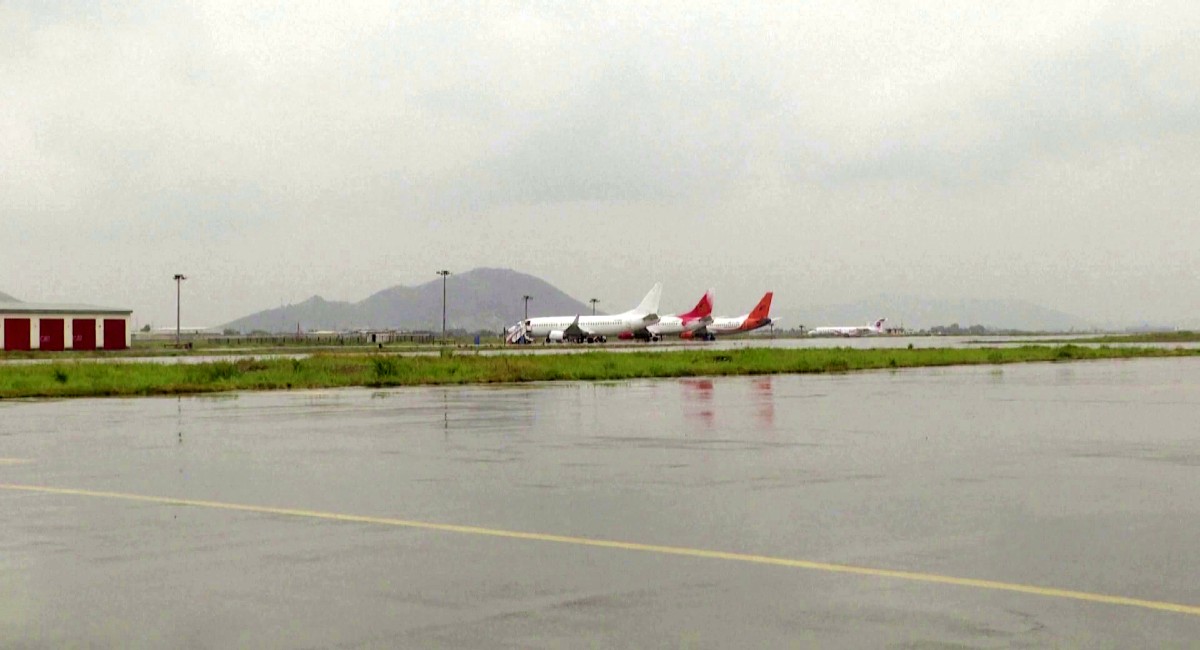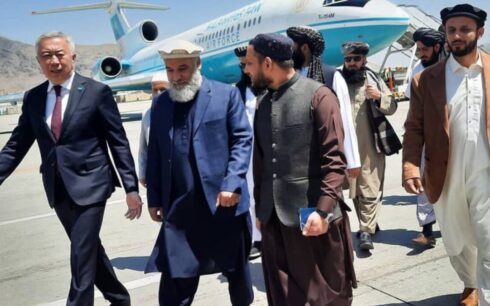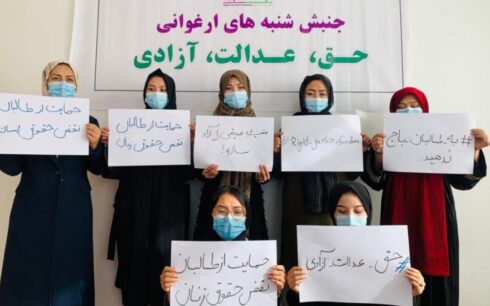A contract was signed between a United Arab Emirates firm and Afghanistan on Thursday to manage air traffic across the country as the Taliban seeks to expand international flights.
Some flights are operating out of Kabul airport, the capital of Afghanistan, but experts said significant extra support is required for major foreign airlines to resume full service.
The full operation of Kabul airport is seen as crucial to reviving Afghanistan’s fragile economy.
With this contract, the Abu Dhabi-based GAAC expects it will help bring back major international airlines.
GAAC aims to invest over $300 million in Afghanistan during a 10-year period to develop the country’s aviation sector. The contract is part of these efforts.
The deal permits GAAC to “operationalize airspace to allow the passage of international carriers,” the company’s regional head Ibrahim Moarafi told reporters at a press conference in Kabul on Thursday.
The agreement also allows GAAC “to restore the navigation services required for the return of major international airlines to Afghanistan’s airports,” he said.
The operations include air traffic control, communication, and surveillance systems and meteorological services.
GAAC contracts with the republic government in Afghanistan were accused of corruption, particularly in their bidding processes.
Taliban deputy prime minister Abdul Ghani Baradar who also participated the signing ceremony said that previous agreements with the company have had a positive impact on resumption of flights by some companies.
Based on the contract, the incomes from air traffic of Afghanistan will go to GAAC in the first five years of the contract and then it will be shared with Afghanistan.
It was the third agreement signed by GAAC with the ministry of civil aviation and transport this year under Taliban rule.
GAAC has already been awarded separate contracts for ground handling services and the screening of passengers at Kabul and other airports.
“Despite our two previous contracts, we still had some vacuum in our operations when it came to guiding flights crossing through Afghanistan’s airspace,” Taliban deputy minister for aviation and transport Ghulam Jelani Wafa said at the conference. “We were short of equipment, while some equipment was broken, and it used to restrict our operations.”
Experts see the agreement as a unilateral decision, which will damage the country’s economy, especially under the current circumstances.
“It is a real high risk. I don’t know the Taliban accepted this risk,” said Ahmad Massoud, a former lecturer at Kabul University.
Taliban has not been recognized by any country yet over their restrictions on Afghans’ freedoms, particularly women’s rights and girls’ education.
The former deputy minister of aviation and transport, Imam Mohammad Warimach, said major companies will not resume their flights to Kabul unless the Taliban is recognized as a government.
Figures by ministry of aviation show that at least 15,000 flights passed through Afghanistan airspace over the past year, adding nearly $10 million to Afghanistan’s budget.
Air traffic control at Kabul airport is currently carried out by a team of Afghans trained by experts from Uzbekistan and Qatar.





